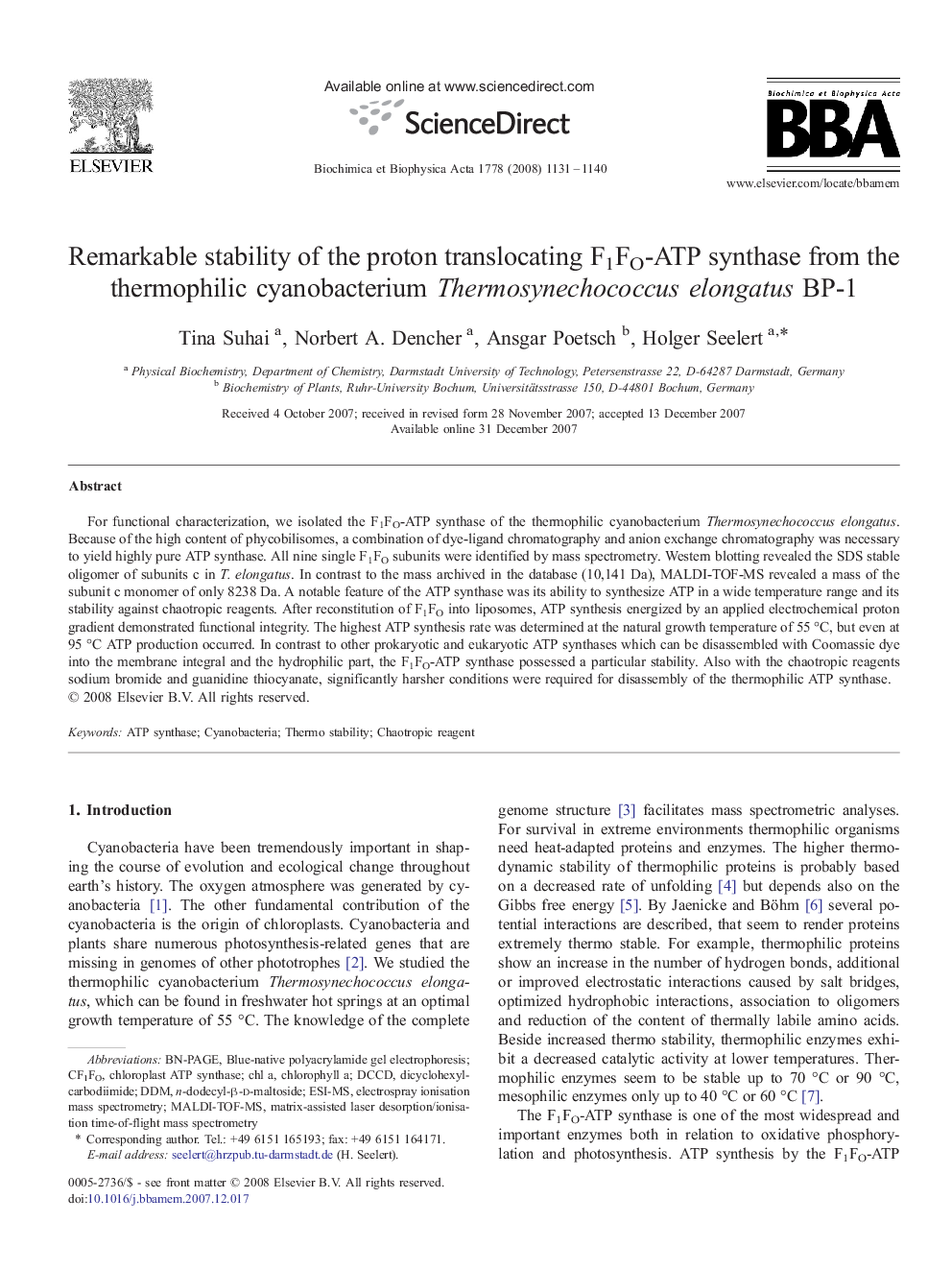| Article ID | Journal | Published Year | Pages | File Type |
|---|---|---|---|---|
| 1945613 | Biochimica et Biophysica Acta (BBA) - Biomembranes | 2008 | 10 Pages |
Abstract
For functional characterization, we isolated the F1FO-ATP synthase of the thermophilic cyanobacterium Thermosynechococcus elongatus. Because of the high content of phycobilisomes, a combination of dye-ligand chromatography and anion exchange chromatography was necessary to yield highly pure ATP synthase. All nine single F1FO subunits were identified by mass spectrometry. Western blotting revealed the SDS stable oligomer of subunits c in T. elongatus. In contrast to the mass archived in the database (10,141 Da), MALDI-TOF-MS revealed a mass of the subunit c monomer of only 8238 Da. A notable feature of the ATP synthase was its ability to synthesize ATP in a wide temperature range and its stability against chaotropic reagents. After reconstitution of F1FO into liposomes, ATP synthesis energized by an applied electrochemical proton gradient demonstrated functional integrity. The highest ATP synthesis rate was determined at the natural growth temperature of 55 °C, but even at 95 °C ATP production occurred. In contrast to other prokaryotic and eukaryotic ATP synthases which can be disassembled with Coomassie dye into the membrane integral and the hydrophilic part, the F1FO-ATP synthase possessed a particular stability. Also with the chaotropic reagents sodium bromide and guanidine thiocyanate, significantly harsher conditions were required for disassembly of the thermophilic ATP synthase.
Keywords
DDMESI-MSChl aBN-PAGEDCCDdicyclohexylcarbodiimideChloroplast ATP synthaseATP synthasen-Dodecyl-β-D-maltosideblue-native polyacrylamide gel electrophoresisCyanobacteriaelectrospray ionisation mass spectrometryMatrix-assisted laser desorption/ionisation time-of-flight mass spectrometryMALDI-TOF-MSThermo stabilityChlorophyll a
Related Topics
Life Sciences
Biochemistry, Genetics and Molecular Biology
Biochemistry
Authors
Tina Suhai, Norbert A. Dencher, Ansgar Poetsch, Holger Seelert,
